CORPORATE ACTION: Clorox
Burts’ Bees Aims For 100% Recyclable, Reusable, Or Compostable Packaging By 2025
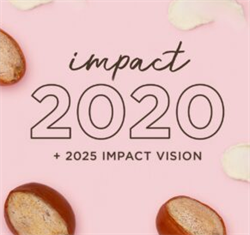
Burts’ Bees has revealed its environmental and social responsibility objectives for 2025. Included in the company’s top sustainability targets are 100% recyclable, reusable, or compostable packaging; 50% reduction in virgin plastic and fiber used in packaging by 2030 (33% by 2025); and investing in recycling infrastructure in the US that will bring about an increase in recycling of plastic equal to the company’s plastic footprint.[Image Credit: © Clorox]
Clorox Launches Products That Protect Consumer Health And Environment
.jpg&width=250&height=166)
Clorox plans 2021 launches of new products it claims are designed to help keep consumers healthy and protect the environment. They include Brita Longlast+ water filter, designed to last for six months, reducing waste, and Burt’s Bees Rescue Balm lip balm, which uses all-natural ingredients and comes in a tube packaging made from plant-based bio resin and recycled plastic.[Image Credit: © The Clorox Company]
Clorox’s Houston Bleach Factory Gains Zero-Waste-To-Landfill Status In December 2020
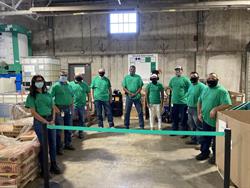 Clorox’s bleach manufacturing plant in Houston, Texas, achieved zero-waste-to-landfill status in December 2020 despite the production surge caused by demand driven by the COVID-19 pandemic. On its way to the zero-waste-to-landfill status, the factory had to deal with challenges that included changes in the recycling market, which brought about several waste streams of hard-to-recycle items. Also, the nearest waste-to-energy plant was more than 500 miles away in Tulsa, Oklahoma. Clorox saw an opportunity when a new waste-to-energy facility in the Houston area opened in 2020. Finally, the plant passed the audit conducted by the Global Safety & Environmental team in December 2020.[Image Credit: © https://www.thecloroxcompany.com/blog/keeping-our-environmental-commitments-during-the-pandemic-production-surge/]
Clorox’s bleach manufacturing plant in Houston, Texas, achieved zero-waste-to-landfill status in December 2020 despite the production surge caused by demand driven by the COVID-19 pandemic. On its way to the zero-waste-to-landfill status, the factory had to deal with challenges that included changes in the recycling market, which brought about several waste streams of hard-to-recycle items. Also, the nearest waste-to-energy plant was more than 500 miles away in Tulsa, Oklahoma. Clorox saw an opportunity when a new waste-to-energy facility in the Houston area opened in 2020. Finally, the plant passed the audit conducted by the Global Safety & Environmental team in December 2020.[Image Credit: © https://www.thecloroxcompany.com/blog/keeping-our-environmental-commitments-during-the-pandemic-production-surge/]
CORPORATE ACTION: Coca-Cola
Coca-Cola Plans To Test Market Beverage In Paper Bottle In Hungary
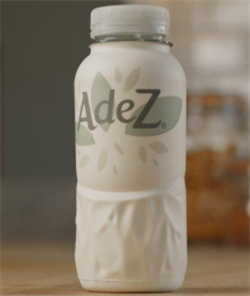
Coca-Cola Company has partnered with Hungarian online grocery retailer Kifli.hu for consumer testing of the plant-based beverage AdeZ, which comes in a paper bottle. Coca-Cola’s research and development team is working with The Paper Bottle. The first-generation prototype, introduced by Coca-Cola and Paboco in fall 2020, consists of a paper shell with a recyclable plastic layer.[Image Credit: © Coca-Cola Company]
CORPORATE ACTION: Colgate
Tom’s Of Maine Launches Paper Packaging For Deodorant Line
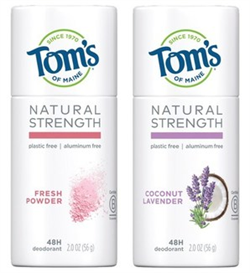
Tom’s of Maine has launched its Natural Strength Deodorant line that comes with 100% plastic-free packaging. The company said the deodorants comes in paper packaging and are already being sold online at Amazon, Walmart, and Target. Tom’s of Maine general manager, Esi Seng, said the paper packaging is perfect for the company’s focus on making personal care products that are natural and environment friendly.[Image Credit: © Tom's of Maine]
Colgate Launches Manual Toothbrush With Replaceable Brush Head And Reusable Handle
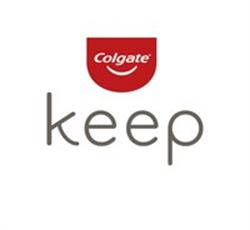 Colgate launched the Colgate Keep, a manual toothbrush with a replaceable brush head and reusable aluminum handle. With this new toothbrush, Colgate aims to help reduce plastic pollution caused by the inability of ordinary recycling centers to process used toothbrushes. In the United States alone, more than 495 million manual toothbrushes were sold in 2020 with the majority of them ending up in landfill. Colgate Keep toothbrushes are available online and at major retailers, including Target and Amazon.[Image Credit: © Colgate]
Colgate launched the Colgate Keep, a manual toothbrush with a replaceable brush head and reusable aluminum handle. With this new toothbrush, Colgate aims to help reduce plastic pollution caused by the inability of ordinary recycling centers to process used toothbrushes. In the United States alone, more than 495 million manual toothbrushes were sold in 2020 with the majority of them ending up in landfill. Colgate Keep toothbrushes are available online and at major retailers, including Target and Amazon.[Image Credit: © Colgate]
CORPORATE ACTION: Henkel
Henkel Increased Recycled Plastic Content Of Toilet Cleaner Bottles
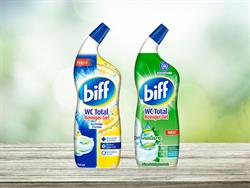
Henkel has increased the recycled polyethylene content of bottles used to package toilet cleaners. For example, bottles of the Biff brand of cleaners now have 50% recycled plastic, while Pro Nature’s line of cleaners have bottles with 75% recycled PE content. Henkel also reduced the total plastic content, reducing the weight of the bottle by 11%. Also, with the new packaging, Henkel has introduced a standard bottle body design for toilet cleaners worldwide.[Image Credit: © Henkel]
Henkel’s Virtual Sustainability Forum Highlights Need For Industrywide Collaboration
 Henkel’s first digital Packaging Adhesives Sustainability Forum saw industry experts from across the plastics packaging value chain discussing the challenges and opportunities presented by sustainable packaging. The event highlighted the need for cooperation among stakeholders to help drive the sector closer to achieving sustainability. This will include the way manufacturers design and make packaging, with end-of-life scenarios considered right at the start of the process. In Europe, legislation and government regulations play a major role in determining the future of packaging.[Image Credit: © Henkel ]
Henkel’s first digital Packaging Adhesives Sustainability Forum saw industry experts from across the plastics packaging value chain discussing the challenges and opportunities presented by sustainable packaging. The event highlighted the need for cooperation among stakeholders to help drive the sector closer to achieving sustainability. This will include the way manufacturers design and make packaging, with end-of-life scenarios considered right at the start of the process. In Europe, legislation and government regulations play a major role in determining the future of packaging.[Image Credit: © Henkel ]
CORPORATE ACTION: L’Oréal
Biotherm Introduces In-Store Refilling System For Life Plankton Elixir Anti-Aging Serum
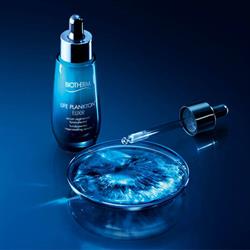
L’Oréal’s Biotherm brand is testing a refill machine for its Life Plankton Elixir anti-aging serum in Madrid. Biotherm partnered with design studio Possible Future in developing the Life Plankton Elixir Blue Fountain in-store refilling system. Possible Future worked with France-based suppliers to make the prototype of the refilling system, including glassmaker Bercauverre.[Image Credit: © L'Oréal]
CORPORATE ACTION: Procter & Gamble
Procter & Gamble To Launch Hair Care Refilling System
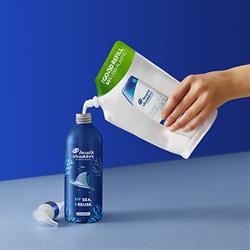
Procter & Gamble plans to launch its Refill the Good product refilling system for the company’s Pantene Pro-V, Head & Shoulders and Herbal Essences shampoo brands in April 2021. It also plans to introduce fully recyclable bottles for hair care products by end of 2021, and cut the use of new plastic by 50% from 2016 levels. P&G believes these measures will help remove 300 million new plastic bottles in Europe in 2021, and in every year after that.[Image Credit: © Procter & Gamble]
Gillette Adopts Recyclable Cardboard Packaging For Relaunched Lines Of Razors
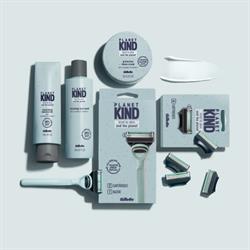 Gillette has relaunched its line-up of reusable razors with recyclable cardboard packaging in the UK. The company is using responsibly sourced paper in making the cardboard packaging, which is also designed to discourage shoplifting. Gillette decided to stop using plastic packaging for its razor line-up after results of a shopper survey revealed 55% of respondents said recyclable packaging was an important factor when deciding to buy a bathroom product. Gillette expects to eliminate 66 tonnes of plastic following its move to use recyclable paper packaging.
Gillette has relaunched its line-up of reusable razors with recyclable cardboard packaging in the UK. The company is using responsibly sourced paper in making the cardboard packaging, which is also designed to discourage shoplifting. Gillette decided to stop using plastic packaging for its razor line-up after results of a shopper survey revealed 55% of respondents said recyclable packaging was an important factor when deciding to buy a bathroom product. Gillette expects to eliminate 66 tonnes of plastic following its move to use recyclable paper packaging.The company said the products’ packaging is recyclable and made with 85% recycled paper, 85% recycled plastic, or forever recyclable aluminum. The product line includes a razor handle that is made with 60% recycled plastic. Also, the brand has partnered with Plastic Bank.[Image Credit: © Proctor & Gamble]
Procter & Gamble Vows To Become Carbon Neutral In The 2020s
Procter & Gamble pledged to become carbon neutral for the 2020s by buying 100% renewable electricity for its global operations, reducing greenhouse-gas emissions in half, and investing in projects that protect, improve, and restore natural ecosystems worldwide. The company’s brands are helping to drive the move. For example, Tide redesigned its detergent formula to clean with cold water as well as with warm water, and toothpaste brands Crest and Oral-B adopted high-density polyethylene tubes, which are easier to recycle compared with ordinary toothpaste tubes.
CORPORATE ACTION: Other
L’Occitane Opens Eco-Friendly Store In Hong Kong
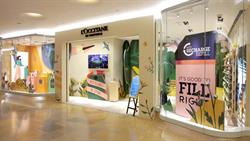 Skincare company L’Occitane has opened its first ecology-friendly retail store in Hong Kong. It’s located in the Pacific Place Mall and offers personal care products, such as shampoos, conditioners, and shower gels, in 100% recycled bottles. The store also promotes public support for environmental protection with “fun activities” through the company’s Make Earth Green Again (#MEGA) Sustainability Reward Program.[Image Credit: © L’Occitane]
Skincare company L’Occitane has opened its first ecology-friendly retail store in Hong Kong. It’s located in the Pacific Place Mall and offers personal care products, such as shampoos, conditioners, and shower gels, in 100% recycled bottles. The store also promotes public support for environmental protection with “fun activities” through the company’s Make Earth Green Again (#MEGA) Sustainability Reward Program.[Image Credit: © L’Occitane]
Tetra Pak Promotes Collaboration To Deal With Sustainability Issues Facing Food Packaging
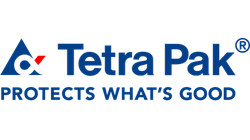 Tetra Pak announced a new platform for collaborating with leading paperboard producers. The move aims to deal with the sustainability obstacles faced by the food packaging industry. The platform also recognizes the need to replace the industry’s linear supply chain. Latest research data has shown that the food supply chain system accounts for 26% of global greenhouse gas emissions and that a third of all food is lost or wasted somewhere along the supply chain.[Image Credit: © Tetra Pak]
Tetra Pak announced a new platform for collaborating with leading paperboard producers. The move aims to deal with the sustainability obstacles faced by the food packaging industry. The platform also recognizes the need to replace the industry’s linear supply chain. Latest research data has shown that the food supply chain system accounts for 26% of global greenhouse gas emissions and that a third of all food is lost or wasted somewhere along the supply chain.[Image Credit: © Tetra Pak]
Ace Of Air Pushes For Circular Economy With Returnable, Reusable Packaging
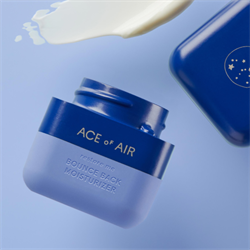
Ace of Air has adopted a circular business model for packaging its skincare products. The personal care brand will sell skincare products in reusable stainless steel packaging. Other materials used in the packaging will include food-grade ceramic, as well as fair-trade rubber for packaging elements that are usually made of plastic or silicone. Consumers will pay $2 per product as rental fee and $3 for the box to be used in return shipping.[Image Credit: © Ace Of Air]
CAMPAIGNS, COMMITMENTS & NGOs
European Soft Drinks Industry Group Announces Circular Packaging Pledges For 2030
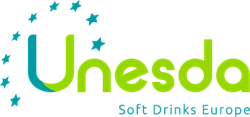 Europe’s soft drinks industry group UNESDA Soft Drinks Europe has launched its Circular Packaging Vision 2030, which contains the industry’s pledge to have 100% recyclable packaging by 2025 and its PET bottles containing 50% recycled materials. The group also promises to use PET bottles made from 100% recycled and renewable PET by 2030, as well as have 90% of its packaging collected. These actions will directly contribute to the European Union’s circular economy transition and are expected to do more than the requirements of EU targets as defined in legislation.[Image Credit: © UNESDA]
Europe’s soft drinks industry group UNESDA Soft Drinks Europe has launched its Circular Packaging Vision 2030, which contains the industry’s pledge to have 100% recyclable packaging by 2025 and its PET bottles containing 50% recycled materials. The group also promises to use PET bottles made from 100% recycled and renewable PET by 2030, as well as have 90% of its packaging collected. These actions will directly contribute to the European Union’s circular economy transition and are expected to do more than the requirements of EU targets as defined in legislation.[Image Credit: © UNESDA]
New Policy Paper Highlights Importance Of Circular Economy For EU’s Climate Strategies
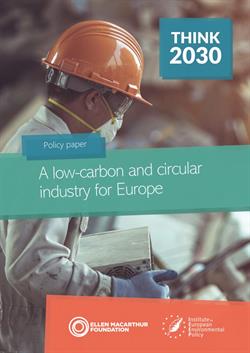
The Ellen MacArthur Foundation has announced the publication of the policy paper, “A Climate-Neutral and Circular Industry for Europe,” which was co-authored with experts from the Institute for European Environmental Policy. The paper highlights the significance of the circular economy for the European Union’s ability to achieve its climate goals and objectives. The paper also presents a list of recommendations that will empower the EU to speed up its transition to a circular economy. Some of the recommendations included integrating the circular economy in all of the EU’s policies and strategies emerging from the EU Green Deal and reinforcing the European Semester process, which guides decisions related to policy reforms in member states.[Image Credit: © The Ellen MacArthur Foundation ]
Brands Must Adopt Four Strategies To Promote Plastic Credits
.png&width=250&height=164) Brands can help promote plastic credits, a system required to launch a circular plastic economy, by following four priorities: the brands must measure their respective plastic footprints through a specialist organization; finance plastic pollution efforts and support plastic initiatives beyond their footprint through plastic credits; set meaningful and actionable plastic reduction targets; and ensure that plastic credits should be closely monitored to confirm their environmental impact.[Image Credit: © rePurpose Global]
Brands can help promote plastic credits, a system required to launch a circular plastic economy, by following four priorities: the brands must measure their respective plastic footprints through a specialist organization; finance plastic pollution efforts and support plastic initiatives beyond their footprint through plastic credits; set meaningful and actionable plastic reduction targets; and ensure that plastic credits should be closely monitored to confirm their environmental impact.[Image Credit: © rePurpose Global]
Coalition Promises Circular-Economy-Driven Growth For Latin America And Caribbean
.png&width=250&height=82) The United Nations Environmental Programme (UNEP) has coordinated the launch of the Regional Coalition on Circular Economy, a regional collaboration to promote circular economy transition in Latin America and the Caribbean. The coalition presents the region with an opportunity for economic development based on circular economy, to benefit society and business while protecting the environment. UNEP partnered with several strategic partners, including the Ellen MacArthur Foundation, Climate Technology Centre & Network, and the Inter-American Development Bank.[Image Credit: © Ellen MacArthur Foundation]
The United Nations Environmental Programme (UNEP) has coordinated the launch of the Regional Coalition on Circular Economy, a regional collaboration to promote circular economy transition in Latin America and the Caribbean. The coalition presents the region with an opportunity for economic development based on circular economy, to benefit society and business while protecting the environment. UNEP partnered with several strategic partners, including the Ellen MacArthur Foundation, Climate Technology Centre & Network, and the Inter-American Development Bank.[Image Credit: © Ellen MacArthur Foundation]
EIA-Greenpeace Report Rates Top 10 UK Supermarkets On Plastic Packaging Cuts
 In 2019, the 10 leading supermarkets in the UK used 896,853 tonnes of plastic packaging, 1.6% lower than in 2018 but 1.2% higher than in 2017, according to a report by the Environmental Investigation Agency and Greenpeace. Data also revealed that eight of the 10 companies reduced their plastic packaging use in 2018-2019, with Asda accounting for more than half of the reduction. Also in 2019, the 10 supermarkets issued 2.1 billion plastic carrier bags and “bags for life”, 8% down from 2018 figures. Data also showed that the number of single-use plastic carrier bags fell 33% during the period covered by the report.[Image Credit: © Environmental Investigation Agency]
In 2019, the 10 leading supermarkets in the UK used 896,853 tonnes of plastic packaging, 1.6% lower than in 2018 but 1.2% higher than in 2017, according to a report by the Environmental Investigation Agency and Greenpeace. Data also revealed that eight of the 10 companies reduced their plastic packaging use in 2018-2019, with Asda accounting for more than half of the reduction. Also in 2019, the 10 supermarkets issued 2.1 billion plastic carrier bags and “bags for life”, 8% down from 2018 figures. Data also showed that the number of single-use plastic carrier bags fell 33% during the period covered by the report.[Image Credit: © Environmental Investigation Agency]
ALLIANCES, PARTNERSHIPS & JVs
India And Australia Host Hackathon For Sustainability And Plastic-Free Packaging Ideas
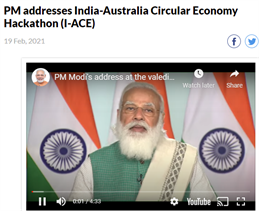 CSIRO and NITI Aayog Atal Innovation Mission hosted the first India Australia Circular Economy Hackathon (I-ACE), which saw teams of students and start-ups from both countries highlighting their ideas on how to promote a circular economy. The themes of the event included reducing plastic waste, reducing packaging waste, and prevention of waste in food supply chain. Participants included Australia’s Charopy, which created a “Smart Bin” designed to prevent soft plastic contamination by only accepting the right kind of containers, and India’s Team-Bambrew with its concept for a sustainable packaging made from bamboo.[Image Credit: © PM India]
CSIRO and NITI Aayog Atal Innovation Mission hosted the first India Australia Circular Economy Hackathon (I-ACE), which saw teams of students and start-ups from both countries highlighting their ideas on how to promote a circular economy. The themes of the event included reducing plastic waste, reducing packaging waste, and prevention of waste in food supply chain. Participants included Australia’s Charopy, which created a “Smart Bin” designed to prevent soft plastic contamination by only accepting the right kind of containers, and India’s Team-Bambrew with its concept for a sustainable packaging made from bamboo.[Image Credit: © PM India]
CONSUMER & PUBLIC OPINION
Survey Reveals Public Support For Sustainability-Friendly, Anti-Pollution Legislation
.png&width=250&height=307)
A majority of voters in Colorado, Florida, Maine, and Washington State support legislation to fight pollution, improve recycling, and hold manufacturers responsible for the packaging and end-of-life for their products. Results of a Public Policy Polling survey in these states revealed 73% of voters support passing a law to improve recycling and 62% are more likely to support the proposed legislation that would require manufacturers to take responsibility for packaging. Two-thirds said they are more likely to support legislation that will also ban dumping waste overseas.[Image Credit: © Plastic Pollution Coalition]
POLICY, REGULATION & LEGAL
UK Launches Program To Fund Sustainable Plastic Packaging Projects
 The UK Research and Innovation (UKRI) is launching the Smart Sustainable Plastic Packaging Challenge, a program aimed at promoting the country as a leader in innovative sustainable plastic packaging. UKRI has allotted £60 million until 2025, with industrial partners expected to invest up to £149 million in the funded projects. The program aims to support projects that will help significantly reduce the volume of plastic waste coming into the environment by 2025.[Image Credit: © The UK Research and Innovation (UKRI) ]
The UK Research and Innovation (UKRI) is launching the Smart Sustainable Plastic Packaging Challenge, a program aimed at promoting the country as a leader in innovative sustainable plastic packaging. UKRI has allotted £60 million until 2025, with industrial partners expected to invest up to £149 million in the funded projects. The program aims to support projects that will help significantly reduce the volume of plastic waste coming into the environment by 2025.[Image Credit: © The UK Research and Innovation (UKRI) ]
UK Parliament Looks At Deposit Return Schemes As Way To Promote Plastics Recycling
.jpg&width=250&height=188)
The UK Parliament’s Environmental Audit Committee has launched a new review looking at the introduction of deposit return schemes to promote plastics recycling in the country. About 40 countries have implemented deposit return schemes and have typically achieved between 80% and 95% recycling rates for plastic bottles. In December 2017, the committee discovered that 5.5 billion plastic bottles go to landfills and incinerators, or become litter, each year.[Image Credit: © Hans]
EC Launches Green Consumption Pledge Initiative To Promote Corporate Sustainability Efforts
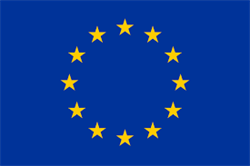 The European Commission is launching the Green Consumption Pledge, an initiative designed to encourage companies to adopt sustainable practices and build consumer trust in the sustainability efforts of companies and their products. The pledge is part of the European Climate Pact and involves five core pledge areas. Participating companies promise to calculate their carbon footprint and the carbon footprint of selected flagship products; increase the sale of sustainable products or services; commit to using part of their corporate public relations budget to promote sustainable practices; and ensure ease of consumer access to timely and accurate information on corporate carbon footprints and sustainability efforts.[Image Credit: © The European Commission]
The European Commission is launching the Green Consumption Pledge, an initiative designed to encourage companies to adopt sustainable practices and build consumer trust in the sustainability efforts of companies and their products. The pledge is part of the European Climate Pact and involves five core pledge areas. Participating companies promise to calculate their carbon footprint and the carbon footprint of selected flagship products; increase the sale of sustainable products or services; commit to using part of their corporate public relations budget to promote sustainable practices; and ensure ease of consumer access to timely and accurate information on corporate carbon footprints and sustainability efforts.[Image Credit: © The European Commission]
INNOVATION & TECHNOLOGY
Novoloop Unveils XIRC TPU Made From Recycled Common Plastic Wastes
 Novoloop has announced XIRC, the world’s first thermoplastic polyurethane made from recycled polyethylene wastes, such as grocery bags, bubble wrap, and shampoo containers. The company says XIRC features mechanical performance properties that are comparable to commercial, virgin thermoplastic polyurethane (TPU). Novoloop claims third-party certification companies SGS and Intertek have tested and confirmed XIRC “performs comparably” to virgin-grade TPUs.[Image Credit: © Novoloop ]
Novoloop has announced XIRC, the world’s first thermoplastic polyurethane made from recycled polyethylene wastes, such as grocery bags, bubble wrap, and shampoo containers. The company says XIRC features mechanical performance properties that are comparable to commercial, virgin thermoplastic polyurethane (TPU). Novoloop claims third-party certification companies SGS and Intertek have tested and confirmed XIRC “performs comparably” to virgin-grade TPUs.[Image Credit: © Novoloop ]
EMERGING IDEAS, THEMES & TRENDS
Ecostore Launches Refillable Aluminum Bottle For Hand And Dish Washing Products In New Zealand
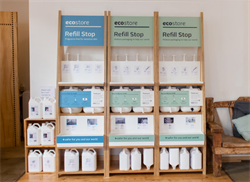
New Zealand-based ecostore has introduced the Refill Bottle, the company’s first refillable aluminum bottle for hand and dish washing products. The bottle is designed to be reused and refilled again and again and is made from 100% aluminum. Recycling the bottles requires only 5% of the energy and emits 5% of the carbon dioxide produced when they were first made.[Image Credit: © EcoStore]
Perfume Brands Do Their Sustainability Part By Launching Refillable Packaging For Fragrances
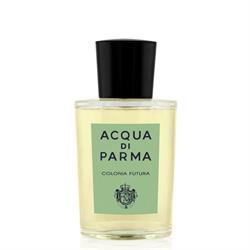
Some leading perfume brands have introduced products that come in refillable and recyclable bottles. Acqua di Parma has launched Colonia Futura, which comes in a bottle that is made from recycled glass and features a top that is made from recycled and recyclable plastic. Ormonde Jayne’s Tolu perfume comes in the brand’s Forever Bottles, which are refillable. Jo Loves has launched its new reusable Fragrance Paintbrushes, which dispenses perfume like a pen.[Image Credit: © Acqua di Parma ]
Closed Loop Partners Report Highlights Need For Reusable Packaging
 Closed Loop Partners’ innovation hub, Center for the Circular Economy, has released a report, “Bringing Reusable Packaging Systems to Life,” which looks at the future adoption of long-lasting reusable packaging that reduces the need for single-use packaging. The investment firm and innovation center based its conclusions from tests focused on reusable cups conducted in partnership with NextGen Consortium and IDEO. Plastic pollution has become an urgent issue, with 11 million metric tons of plastic waste getting into the world’s oceans each year and microplastics found in food humans eat.[Image Credit: © Closed Loop Partners]
Closed Loop Partners’ innovation hub, Center for the Circular Economy, has released a report, “Bringing Reusable Packaging Systems to Life,” which looks at the future adoption of long-lasting reusable packaging that reduces the need for single-use packaging. The investment firm and innovation center based its conclusions from tests focused on reusable cups conducted in partnership with NextGen Consortium and IDEO. Plastic pollution has become an urgent issue, with 11 million metric tons of plastic waste getting into the world’s oceans each year and microplastics found in food humans eat.[Image Credit: © Closed Loop Partners]
Hipli Helps Promote Circular Economy With Reusable Shipping Packs
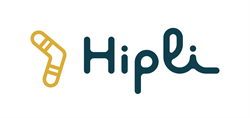 French start-up Hipli offers reusable shipping packs designed to help e-commerce companies reduce plastic packaging waste. Hipli does not sell the packs but instead provides a service that includes transport and logistics. Consumers can post the pre-paid package back to the company after using the product. Hipli then cleans the pack before it is returned into use.[Image Credit: © Hipli]
French start-up Hipli offers reusable shipping packs designed to help e-commerce companies reduce plastic packaging waste. Hipli does not sell the packs but instead provides a service that includes transport and logistics. Consumers can post the pre-paid package back to the company after using the product. Hipli then cleans the pack before it is returned into use.[Image Credit: © Hipli]
Seven Trends Will Drive Growth Of The Circular Economy In 2021
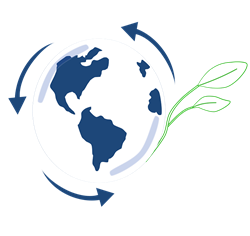 In 2021, seven trends are expected to help expand the circular economy, including an increase in number of brands adopting reusable packaging for their products; remaining plastic packaging becoming smaller and easier to recycle; more companies willing to take back products used by consumers; and companies’ adoption of the circular economy as part of their climate initiatives. Also, more governments are expected to enact new laws and policies supporting a circular economy, and more companies are likely to measure their achievements in supporting sustainability.[Image Credit: © nieuwenhuizenvivienne]
In 2021, seven trends are expected to help expand the circular economy, including an increase in number of brands adopting reusable packaging for their products; remaining plastic packaging becoming smaller and easier to recycle; more companies willing to take back products used by consumers; and companies’ adoption of the circular economy as part of their climate initiatives. Also, more governments are expected to enact new laws and policies supporting a circular economy, and more companies are likely to measure their achievements in supporting sustainability.[Image Credit: © nieuwenhuizenvivienne]
OTHER NEWS
Closed Loop Partners’ Beyond The Bag Challenge Finds Alternatives To Plastic Bags
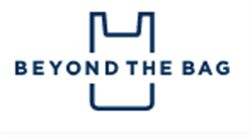 Walmart has announced the winners in the Closed Loop Partners’ Beyond the Bag Challenge, a global competition seeking to find the best alternative solutions to single-use plastic bags. The competition, which was also supported by other members of the organization, including Target, CVS, and Kroger, received more than 450 submissions and produced nine winners. The winning solutions included ChicoBag, a low- to no-cost reusable bag designed to help people who forget their bags at home; Eon, a bag featuring technologies to promote circularity; and SmartC, a smart tag-and-bag system designed for people who use digital tools.[Image Credit: © Closed Loop Partners]
Walmart has announced the winners in the Closed Loop Partners’ Beyond the Bag Challenge, a global competition seeking to find the best alternative solutions to single-use plastic bags. The competition, which was also supported by other members of the organization, including Target, CVS, and Kroger, received more than 450 submissions and produced nine winners. The winning solutions included ChicoBag, a low- to no-cost reusable bag designed to help people who forget their bags at home; Eon, a bag featuring technologies to promote circularity; and SmartC, a smart tag-and-bag system designed for people who use digital tools.[Image Credit: © Closed Loop Partners]
Copyright 2026 Business360, Inc.

